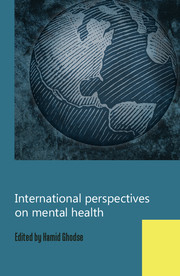Zimbabwe
from Africa
Published online by Cambridge University Press: 02 January 2018
Summary
Zimbabwe is a landlocked country which has recently emerged from some marked political and socioeconomic challenges. Against this background, mental health has fallen down the priority list, as matters such as food shortages and the AIDS scourge have taken precedence. Zimbabwe is in southern Africa; Zambia and Botswana lie to the north, Namibia to the west, South Africa to the south and Mozambique to the east. Its population is 11.4 million. The capital city is Harare, which has a population of 1.6 million.
Recent health service history
Zimbabwe had centralised health services prior to 1980. In 1984 a project was set up to decentralise health services by upgrading the infrastructure. Each of the country's nine provinces had a provincial hospital built or refurbished. The provinces are subdivided into districts, and district hospitals were also built or refurbished. In each district there are smaller hospitals, called health centres. In the community, local clinics were built within a radius of 10 km of all households. A referral system was put in place where patients accessed treatment at clinics and were referred via the different levels of services up to the central hospitals. Unfortunately, there was pressure to reduce public spending and the projects had to be abandoned before completion. Each of the provincial hospitals was supposed to have a psychiatric unit and the district hospitals psychiatric beds. The project was abandoned before this could be achieved. The problem was made worse with the political and socioeconomic crisis which began in 2000. Psychiatric nurses began to emigrate in large numbers and health services gradually became centralised again. Mental health services were once free for all but this became unsustainable as the country's economy contracted. Social workers were then used to determine who had the means to pay hospital fees and who would be given permission to access free mental health services. The country's economy is now showing signs of stability and the process of decentralisation is being re-implemented. Mental health services are free again in all government facilities.
Mental health services
There are six public institutions with psychiatric beds: Harare Hospital Psychiatric Unit, Parirenyatwa Hospital Annexe, Ingutsheni Hospital, Mpilo Hospital Psychiatric Unit, Ngomahuru Hospital and Mutare Hospital Sakubva Unit.
- Type
- Chapter
- Information
- International Perspectives on Mental Health , pp. 56 - 60Publisher: Royal College of PsychiatristsPrint publication year: 2011



